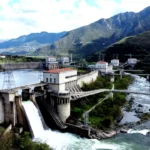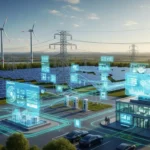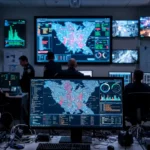In the global quest for a sustainable future, one often underestimated but crucial factor shines brightly: energy efficiency. As we confront the pressing challenges of climate change and resource scarcity, maximizing energy output while minimizing waste becomes a top priority. Energy efficiency is not just a choice; it’s necessary to build a cleaner, more resilient world for current and future generations.
Energy Efficiency for Sustainable Development
At its core, energy efficiency is optimizing how we produce, distribute, and consume energy. It’s a simple yet powerful principle that can be applied across industries, sectors, and individual lives. Opportunities to enhance energy efficiency are abundant, spanning buildings and transportation to manufacturing and technology.
Embracing energy efficiency isn’t merely an environmental consideration; it’s a strategic move with wide-ranging benefits. Decreased energy consumption translates to lower utility bills for households and businesses, stimulating economic growth and increasing disposable income. Moreover, energy-efficient practices often lead to job creation and technological innovation as industries adapt to changing demands.
Building Environment is a Gateway
The built environment plays a pivotal role in the energy efficiency equation. Buildings are not only where we live and work but also where we consume a significant portion of our energy. Investing in energy-efficient design, materials, and technologies can significantly lower a building’s energy consumption, reducing its carbon footprint and operating costs.
Renovating existing structures to be more energy-efficient is equally important. Technologies such as improved insulation, energy-efficient lighting, and smart building management systems can reduce energy consumption. The concept of “green buildings” has gained traction, promoting sustainable construction practices prioritizing energy efficiency, indoor air quality, and resource conservation.
The Road to Sustainable Mobility
Another critical frontier for energy efficiency is transportation. The transportation sector especially contributes to greenhouse gas emissions and air pollution. Embracing energy-efficient vehicles and alternative fuels can transform these negative impacts.
Electric vehicles (EVs) have emerged as a promising solution, offering zero tailpipe emissions and lower operating costs than traditional internal combustion engine vehicles. Coupled with advancements in battery technology, EVs are becoming more affordable, with longer ranges and faster charging times. The widespread adoption of EVs and improvements in public transportation and sustainable urban planning can revolutionize our transportation systems and contribute to cleaner, more livable cities.
Maximizing Productivity, Minimizing Waste
The industrial sector, a significant energy consumer, has immense potential for energy efficiency improvements. Industrial processes can be optimized to reduce energy waste, lower production costs, and decrease environmental impact. From adopting energy-efficient manufacturing techniques to implementing waste heat recovery systems, industries can align profitability with sustainability.
Innovation also plays a role in driving energy efficiency in industries. Cutting-edge technologies such as artificial intelligence and the Internet of Things (IoT) can enhance the monitoring and management of energy consumption, enabling real-time optimization and better decision-making. By investing in research and development, industries can lead the way in achieving ambitious energy efficiency targets.
Challenges and the Way Forward
While the benefits of energy efficiency are compelling, challenges persist on the road to widespread adoption. One of the primary obstacles is the upfront cost of implementing energy-efficient technologies and practices. However, this investment often pays off in the long run through reduced operating expenses and improved competitiveness.
Lack of awareness and information also poses a challenge. Many individuals and businesses are unaware of the energy-saving opportunities available to them. Education campaigns, incentives, and supportive policies can be crucial in raising awareness and encouraging the adoption of energy-efficient practices.
Responsibility for a Sustainable Future
Energy efficiency is not the responsibility of a single entity—it’s a collective endeavor that requires collaboration among governments, industries, communities, and individuals. Governments can lead by enacting supportive policies, offering incentives, and setting ambitious energy-efficiency targets. Industries can innovate and invest in technologies that reduce energy consumption. Communities can adopt energy-efficient practices and support local initiatives. Individuals can make conscious choices in their daily lives to conserve energy.
Conclusion
As we navigate the challenges of the 21st century, energy efficiency is a guiding light. This practical and impactful solution aligns with our moral imperative to protect the planet and its inhabitants. Embracing energy efficiency is not a luxury but a necessity —one that can transform industries, elevate living standards, and mitigate the impacts of climate change.
Every action to optimize energy use contributes to a larger goal: a cleaner, more sustainable world. From switching to energy-efficient appliances and vehicles to retrofitting buildings and advocating for policy changes, each step matters. By prioritizing energy efficiency, we not only lower costs and improve our quality of life but also fulfill our responsibility to safeguard the Earth for future generations. It’s time to shine a light on the path of energy efficiency and embark on a journey towards a more sustainable future.





